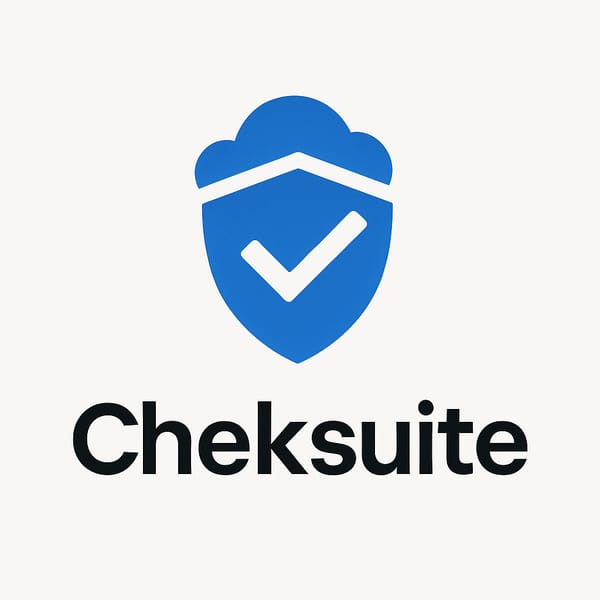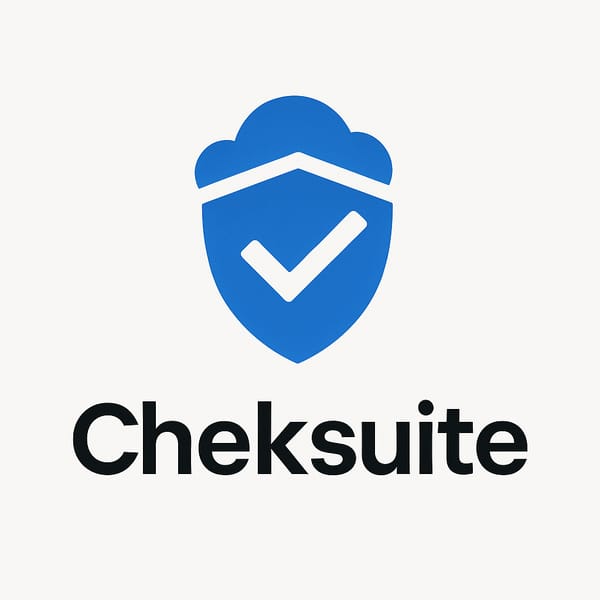Bootstrapping a Startup on a Shoestring: Launch Smart, Spend Less

Launching a startup often feels like walking a tightrope: you need to move fast, build meaningful progress, and conserve capital all at once. The traditional narrative of raising venture capital upfront doesn't apply to everyone. For many founders—especially in consulting, B2B, dev tools, and security services—building a lean, self‑sustaining business is both viable and rewarding.
This post breaks down a practical pathway to do just that. We'll start with a proven roadmap—Adam Caudill's Checklist: Starting a Security Consulting Firm—and layer in modern services and discounts that can dramatically reduce your burn rate. The goal? Get as much done as possible with strategically allocated spend and smart use of free or deeply discounted resources.
1. Start with a rock‑solid foundation
In March 2020, Adam Caudill published a meticulously detailed Checklist: Starting a Security Consulting Firm. While focused on security consulting, it's a powerful blueprint for any service-based startup.
Key pillars include:
- Legal & business setup – company formation, EIN, licensure, insurance
- Contracts & client engagement – NDAs, MSAs, scopes, SOWs, rate models
- Marketing & positioning – messaging, case studies, channels
- Operations – service delivery model, tech stack, vendor management
- Finance & accounting – billing, pricing, bookkeeping
This checklist is both timeless and adaptable. It walks through every essential step—making sure you don't waste time or run into compliance/legal surprises mid‑journey.
Use it as your launchpad, then turn your attention to minimizing out-of-pocket spend across tech, tools, and operations.
2. Bank with purpose—and unlock deals: Mercury
The first stop in your stack should be a modern financial infrastructure. Traditional banks are slow, opaque, and priced like it’s still the 1990s. Enter Mercury—a fintech platform built for startups.
Why Mercury?
- No monthly fees, no minimum balances, free wire transfers, virtual cards, and a clean API integration
- Designed for remote-first, distributed teams—open an account in minutes with minimal paperwork
- Competitive perks—through Mercury Perks, you get powerful tools and credits to help your business scale
Mercury becomes more than a bank—it’s a startup launchpad. It conveniently connects business finance with tools for operations, monitoring, accounting, and more.
3. Slash infrastructure costs: DigitalOcean credits
Hosting and infrastructure can stretch your budget early on—even a few hundred dollars a month adds up.
Good news: DigitalOcean Hatch Program gives eligible startups up to $25,000 in credits valid for the first year.
- What you get: full access to Droplets, managed databases, Kubernetes, networking, and storage.
- Why it matters: you can scale from a single-server prototype to a multi-region deployment without spending a cent.
Instead of worrying about monthly bills, you can invest in development, UX, marketing—or simply gain breathing room to iterate without constraint.
4. Monitor and secure everything: Datadog credits
Performance issues, downtime, and security blind spots can kill a startup's momentum—and your reputation.
Mercury’s perks include Datadog credits—typically up to $100K over a year.
- What you get: full observability—metrics, traces, logs, and security products like RASP, threat detection, and compliance monitoring.
- Why it matters: You can launch with confidence, preempt outages, and improve system reliability while complying with security best practices—all for free (initially).
This is one area where building with discipline early saves steep headaches and emergencies later.
5. Simplify accounting: Puzzle.io
Truly understanding your financial health—burn rate, runway, gross margins—requires real-time bookkeeping. Tools like QuickBooks or Excel aren’t built for speed or clarity.
Puzzle.io is a lightweight, API-first accounting platform built for startups—and it integrates deeply with Mercury .
- Deal: 50% off your first 6 months via Mercury Perks.
- What it does: syncs bank transactions, reconciles, categorizes, generates P&L, burn, runway dashboards.
- Why it matters: you spend less time fettling spreadsheets and more time making strategic decisions based on clear metrics.
Rather than fighting software bloat, you get focused insights—built to support founders who don’t have CFO levels of bandwidth.
6. Automate HR and payroll: Gusto
Team building is time-consuming enough—payroll, benefits, compliance shouldn’t add anxiety.
Gusto, when paired with Mercury, offers 3 months free of full-service HR, payroll, benefits admin, tax filing, and onboarding support.
- Why it matters: payroll accuracy, tax compliance, and benefits integration are mission-critical tasks best handled by specialists. With Gusto, you offload this burden.
- Long-term ROI: what founders save in frustration and avoided errors far outweighs the cost—especially early on.
It’s one of those “worth it even at full price” tools—getting a discount is icing on the cake.
7. The rest of Mercury Perks—and beyond
Mercury doesn’t stop at the tools above. Its Perks program includes hundreds more:
- GitHub, Notion, Slack, AWS, Google Cloud, Namecheap, security tools, legal services, and much more.
- Everything is curated for the needs of fledgling startups: discounts, free tiers, or significant credits.
- Combined, these add up to tens of thousands of dollars in non-dilutive value—all from opening a bank account.
Yes, Stripe Atlas, Y Combinator, and other accelerators have similar bundles—but Mercury is open to all and provides real utility even without raising VC. It’s simply the easiest cheat code for early stage builders.
8. How to orchestrate with discipline
This isn’t about freebies—it’s about deploying capital efficiently, focusing on product-market fit, and delivering value without unnecessary costs.
Here’s a streamlined roadmap to build smart under budget constraints:
- Build your foundation using Adam Caudill’s checklist – business entity, contracts, messaging, pricing.
- Open a Mercury account – get the bank, perks, and API set up.
- Apply for Cloud Credits – DigitalOcean, possibly AWS/GCP via their free tiers or Mercury partners.
- Stack observability – plug in Datadog to monitor early systems.
- Automate bookkeeping – enable Puzzle.io to track your burn, revenue, and runway.
- Streamline HR and payroll – get Gusto launched before hiring begins.
- Deploy additional tools as needed – GitHub, productivity suites, etc.
- Regularly evaluate – review monthly expenses, reapply credits, keep within credit thresholds.
- Invest to impress – once you’ve gained traction, allocate funds only where they accelerate growth or improve quality significantly.
9. The compounding impact of being lean
- Cash preservation – credit offsets buying time to validate product-market fit before raising money.
- Operational clarity – integrated systems give real-time insight—reconcile your bank, cash flow, efforts in one place.
- Speed and resilience – quality infrastructure, monitoring, and team systems lift professional polish and reduce stress.
- Time equity – fewer distractions from admin allow you to launch, market, close clients, and iterate.
Boiling it down: when money is a scarce resource, strategic tools and leverage multiply your effectiveness.
10. The bigger picture
Many founders think startups need VC or huge technical teams from day one. That’s a myth. The world is filled with lean, longevity-first businesses.
Mercury’s program is just one example—but the principle is universal: assemble an efficient, functional toolkit by partnering with providers who care about startups, and you can launch, iterate, and grow without drowning in costs or admin.
Yes, it takes discipline to keep granular track of credits and usage. But if you’ve followed Adam’s checklist and built responsibly, tracking spend isn't a chore—it’s an opportunity to control outcomes.
Closing thoughts
Bootstrapping doesn’t mean doing more with less; it means doing only what gets you closer to product-market fit. Build the right infrastructure early, stay frugal, and reinvest judgmentally. Take advantage of programs like Mercury Perks—$25K in DigitalOcean, $100K in Datadog, discounted Puzzle, Gusto, and more—and you can launch with surprising speed and substance.
By combining Adam’s foundational advice and this tech + finance ops stack, you’ll be much closer to building a self-funded, sustainable business that sets you up to scale—or choose your own path forward, with confidence.
Here’s to launching smart on a shoestring!





